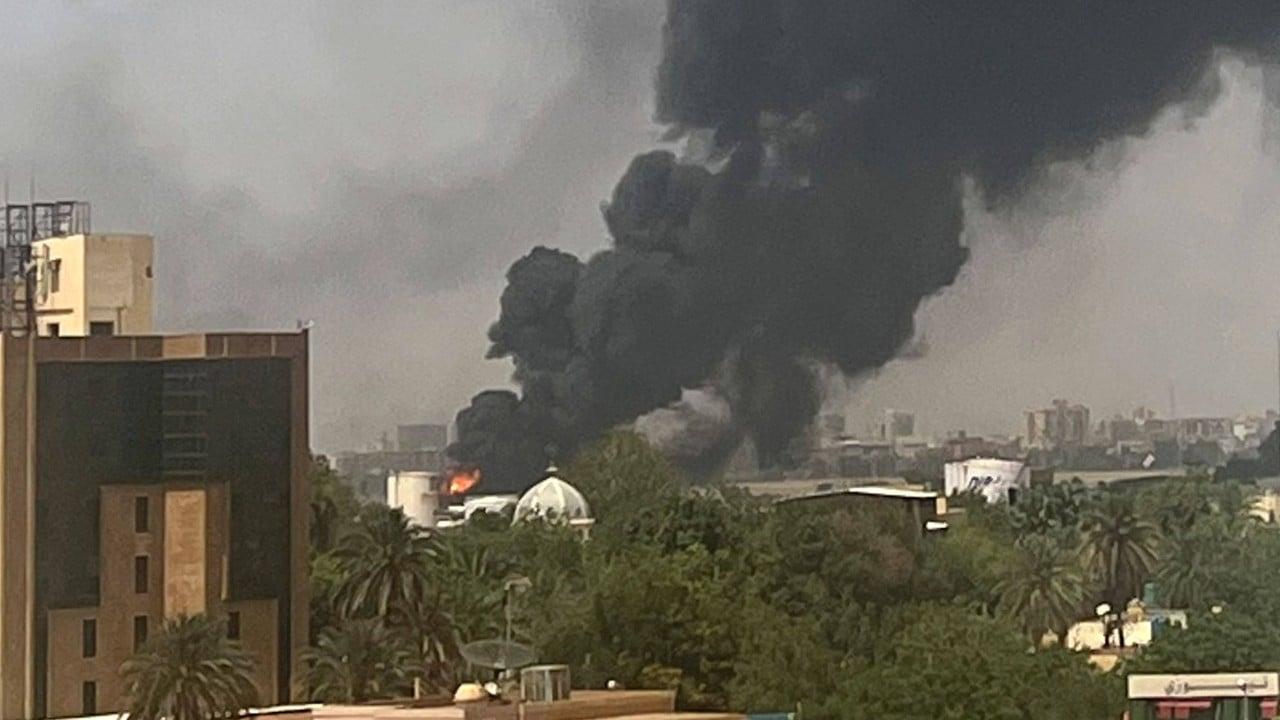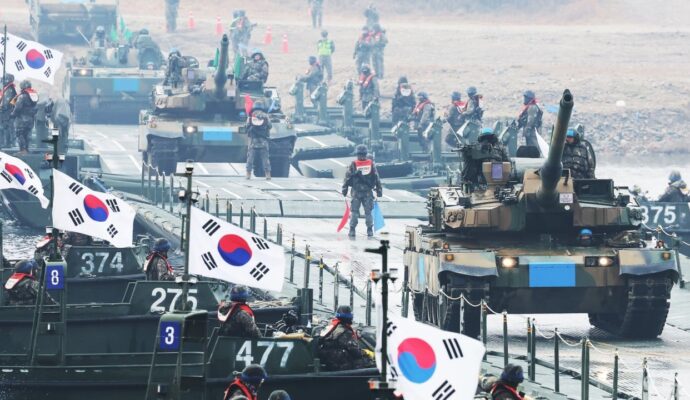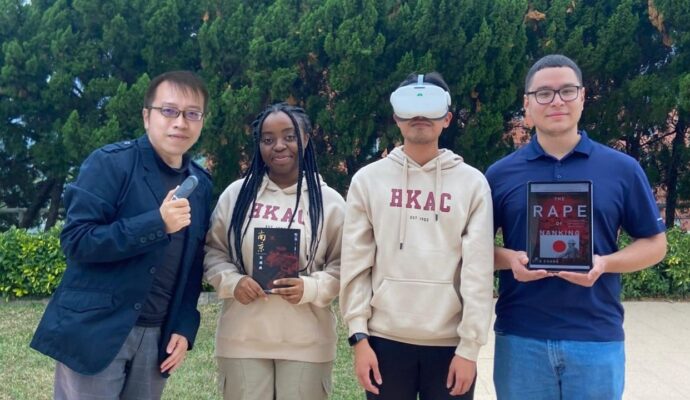
“[Citizens] should stay away from street-level rooms or windows, to avoid being accidentally injured by stray bullets.”
Army soldiers deploy in Khartoum as clashes are reported on Saturday. Photo: AFP
The clashes, which erupted in Khartoum and elsewhere in the country on Saturday morning, follow months of tensions in a power struggle between the Sudanese Armed Forces (SAF) and the heavily armed Rapid Support Forces (RSF) paramilitary group.
According to the World Health Organization, casualties were spread across the states of South Kordofan, North Darfur and Northern as well. Only Northern state borders the state of Khartoum, which is home to the eponymous capital city and has witnessed the most intense conflict.
The armed forces are loyal to the de facto Sudanese leader, General Abdel Fattah al-Burhan, who came to power after he and other top generals toppled president Omar al-Bashir amid mass demonstrations against his 30-year autocratic rule.
The RSF, mainly composed of former militia, are led by al-Burhan’s deputy and former warlord, Mohamed Hamdan Dagalo, also known as Hemedti.
Both sides joined forces to oust al-Bashir and led a coup against Sudan’s subsequent military-civilian government in 2021, but have long been involved in a power struggle that has stalled Sudan’s promised democratic transition.
The major sticking point reportedly is plans to incorporate the 100,000-strong RSF into the army and under its leadership.
Either side have claimed control of some areas in Khartoum, with the firefight continuing despite a ceasefire agreed upon on Sunday. Each side blames the other for instigating the violence.
Army chief Abdel Fattah al-Burhan (left) and RSF commander Mohamed Hamdan Daglo. Photo: AFP
China’s foreign ministry has urged the rival factions to end the fighting.
“China calls on the two parties to the conflict in Sudan to cease fire as soon as possible to avoid further escalation of the situation,” a ministry spokesman said on Sunday.
“China hopes that all parties in Sudan will strengthen dialogue and jointly promote the political transition process.”
China’s economic presence in Sudan is one of the strongest in Africa, despite continuing political turmoil in the Islamic country since it split into two in 2011, after South Sudan seceded following decades of civil war.
More than 130 Chinese companies invest and operate in Sudan, which is also home to a sizeable Chinese work force. China is also Sudan’s largest trade partner, with trade volume totalling US$2.6 billion in 2021.
Chinese enterprises in Sudan are involved in various infrastructure sectors, and have a market share of over 50 per cent in contracted works.
According to the China’s Commerce Ministry, 40 new work contracts were signed by Chinese enterprises in Sudan in 2020, and the number of Chinese site workers in Sudan totalled 1,330 by the end of that year.
With China opening up following the pandemic, the number of Chinese state-owned enterprise personnel in Sudan is expected to grow.


